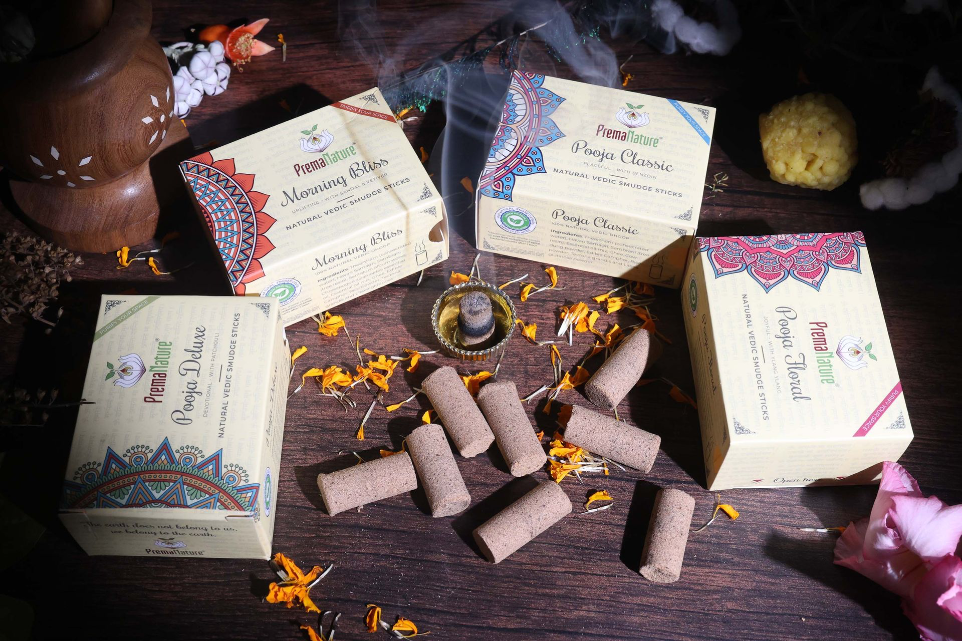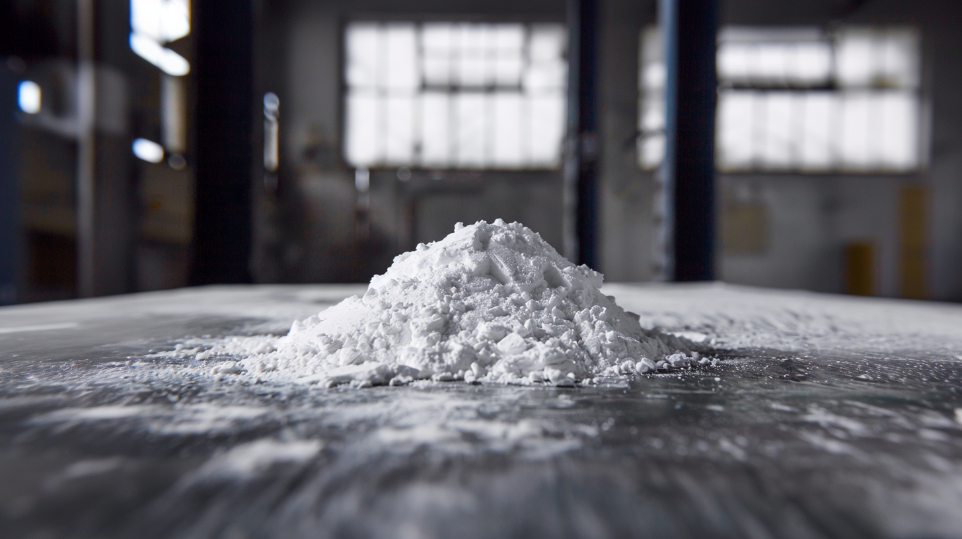Why We Choose for
100% Natural Products
The most important of our values
Today many producers and distributors rely almost completely on synthetic products manufactured with harmful, unsustainable and polluting chemicals. In 2012, the production of incense sticks was estimated to be one million tons per year, almost all (99%) of which were wholly or partially synthetic. Not only does this adversely affect our health, it is also detrimental to the environment.
There is a substantial amount of evidence that chemical fragrances have a very harmful effect on our bodies, yet government legislation to protect people from this in most countries lags behind.
In 2019, the Italian government blocked the import of incense from India due to concerns about health and safety of the incense products, all from well-known brands. There is a trend to be more critical about the origin and content of products and at PremaNature we try to educate and offer an alternative for those who are open to change.
In 1989 the US Office of Occupational Safety and Health (OSHA) identified nearly 900 toxic chemicals used in scented products. Although it is clear from scientific literature that these fragrances affect the nervous system, most of these chemicals are still prevalent today in shampoos, lotions, detergents and other products. As companies are not obligated to mention the individual ingredients, many chemicals can hide behind the term ‘fragrance’ on the product label. These chemicals enter the body via the skin or inhalation. Research done by the Campaign for Safe Cosmetics links these chemicals to short term memory loss, central nerve system disorders and even depression. Also the Environmental Protection Agency (EPA) says that synthetic chemicals used as fragrance contribute to neurological ailments, including fatigue, dizziness, migraines and forgetfulness. We recommend watching the 2015 documentary ‘Stink!’, which takes an in-depth look at this subject.
PremaNature's products, infused with natural and high quality ingredients, are a rarity on the market.
Is it not a contradiction to use such environmentally unfriendly products in rituals worshipping the ‘Creator’?
Essential oils
Low production costs and strong smells are factors that continue to drive manufacturers to produce and customers to use synthetic incense.
The essential oils we use contain hundreds of different natural chemical compounds that can exert a range of beneficial effects on the body, and prevents the oils from disrupting the body’s natural balance or homeostasis. If one constituent exerts too strong an effect, another constituent may block or counteract it, thereby preserving homeostasis. Synthetic chemicals, on the other hand, usually have only one action, which often disrupts the body’s natural homeostasis. More information in our blog post.

Recyclable Packaging
Our priority is to create a product that is gentle on the environment throughout its lifecycle. Despite the difficulties we encounter, we invest significantly in ensuring that our packaging is as biodegradable as possible. Furthermore, we continuously enhance our packaging based on customer suggestions.

Charcoal
Many manufacturers and brands avoid incorporating charcoal into their incense products to appeal to consumers who prioritize nature and health. However, pure charcoal offers more advantages when burned than recycled flower powder or wood dust, which are often used instead. The carbonization of these powders can generate various pollutants. Charcoal, being already carbonized, produces a cleaner burn, noticeable in its fragrance and suitability for those with respiratory sensitivities. Further details on this can be found here.

Propylene Glycol (DPG)
The majority of hand-rolled incense products are made with DPG, which helps to prolong the fragrance and maintain the consistency of the dough on the bamboo stick. Nevertheless, it's essential to be aware that DPG can produce toxic fumes when ignited, as stated in the safety data sheet. The legislation regarding this lacks behind and the majority of users is not aware of this. It's better to invest in quality incense made with natural ingredients than cheap alternative with potential side effects in the long run. More information in our blog post.

Ethanol
To cut down on expenses, many Aloe Vera gel products are formulated using dried Aloe Vera powder mixed with water and ethanol. You can tell if the gel is not pure by its transparent appearance, as authentic Aloe Vera juice would have a more cloudy appearance. Despite claims of being 100% pure on the packaging, ethanol is often added to provide a cooling sensation on the skin. However, ethanol is often not naturally derived and can lead to skin dehydration with frequent use.

Burning Enhancers
One reason why charcoal has gained a negative reputation and is often used deceptively in marketing strategies by certain modern incense brands is due to its association with chemical burning agents like potassium nitrate. These agents can release fumes containing nitrogen or sulfur during combustion, even though they have no actual connection to charcoal. Some incense sticks incorporate burning agents to ensure immediate ignition, uniform burning, and continuous combustion. However, this practice may lead to potential side effects such as headaches or allergic reactions. More information in our blog post.
